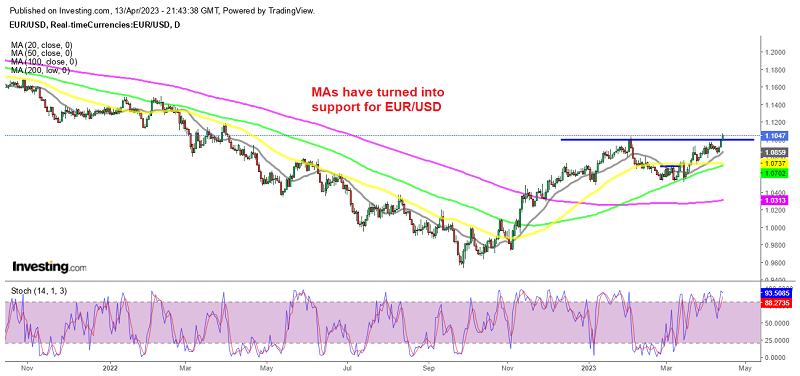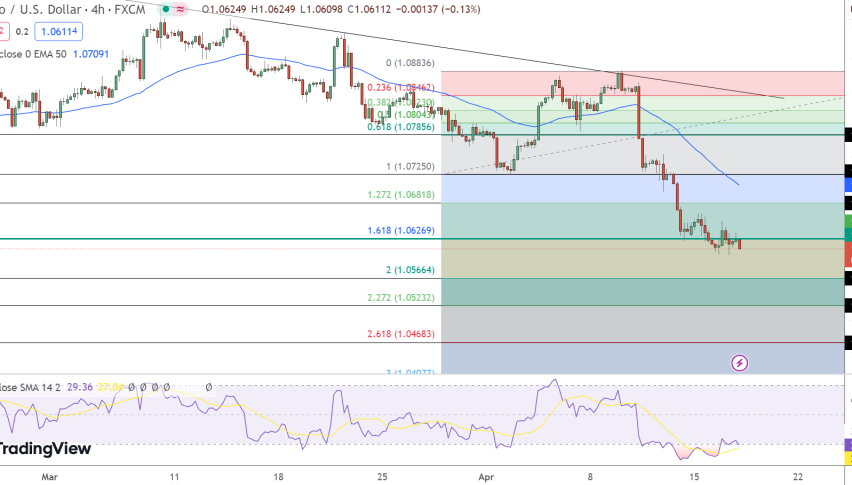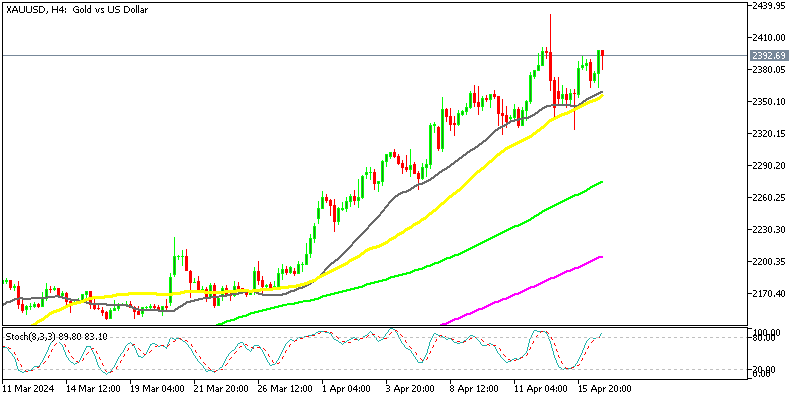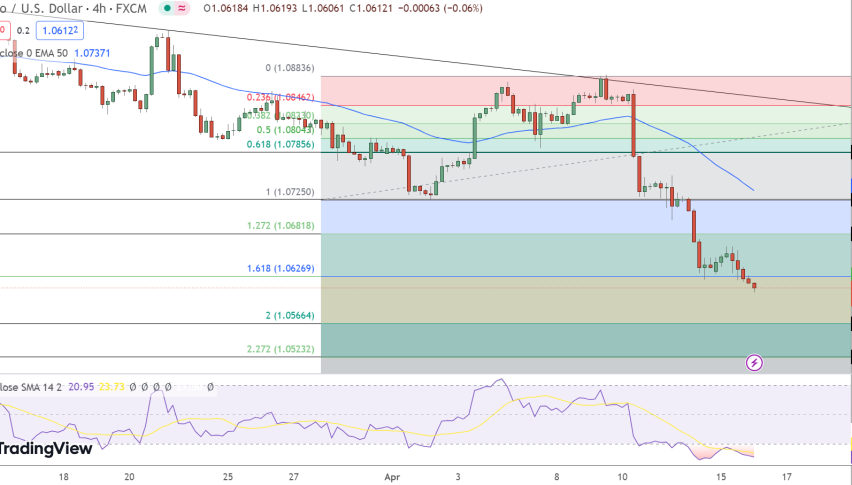
EUR/USD Returns Above 1.10 for the First Time Since March 2022
EUR/USD entered a bearish trend in the summer of 2021 as inflation started to surge above 5% in the US and eventually, the FED entered the most hawkish period in history, with many consecutive rate hikes, while the European Central Bank followed several months later. As a result, this pair fell from above 1.22 to above 0.95 by the end of September last year.
Moving averages were providing resistance on the daily chart during the decline, as shown above, particularly the 50 SMA (yellow). Although we have seen a bullish reversal since then and the price peaked above 1.10 in early February, but buyers couldn’t hold the price above there for too long.
In February the USD made some gains, but the banking crisis and the weaker data killed the vibe, turning EUR/USD bullish again since early March. The FED is expected to stop after a last 25 bp hike in May, which is still not certain, while on the other hand policymakers at the European Central Bank (ECB) are considering further hikes after a 25 basis points (bps) rate hike next month. The ECB is leaning towards this decision as past rate hikes have not yet had an impact on the economy. However, the sources note that other options are still on the table, and the debate is not yet settled.
Although, the ECB believes that a terminal top is now in sight, and therefore, a cautious approach to rate hikes is necessary, but that’s still more hawkish than the FED. ECB member Kazaks was speaking on NBC yesterday reiterating that they have to continue with rate hikes, having started 6 months after the FED.
ECB member Kazaks, speaking on media:
- Risk of recession is non-trivial
- Rates will need to go up more to tame inflation
- Key issue is still very high inflation
- Would not exclude a 50 basis point hike in May
Yesterday sources from the ECB comment said that ECB officials were converging toward a 25 basis point hike. We are long on EUR/JPY as well, since the Euro is showing resilience as a risk currency, while the Yen is showing weakness as the new Bank of Japan governor is keeping the policy unchanged.












